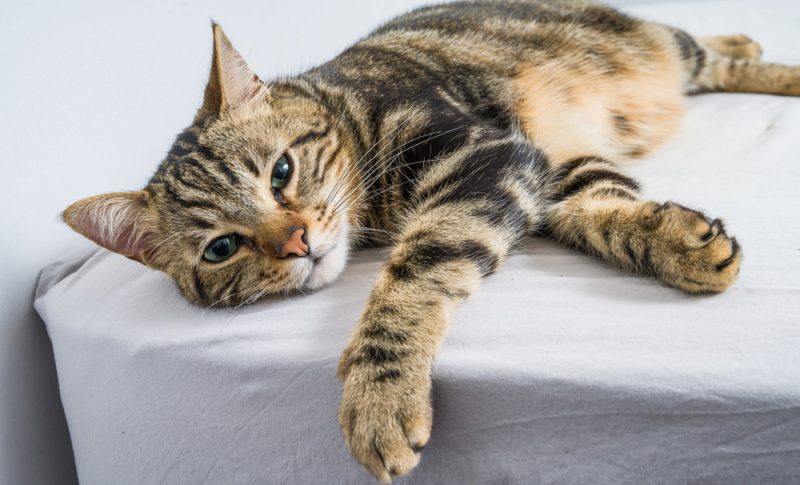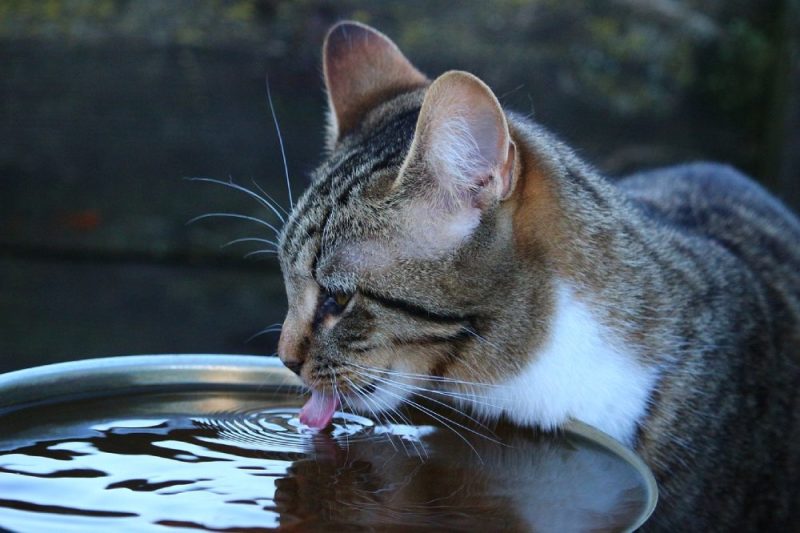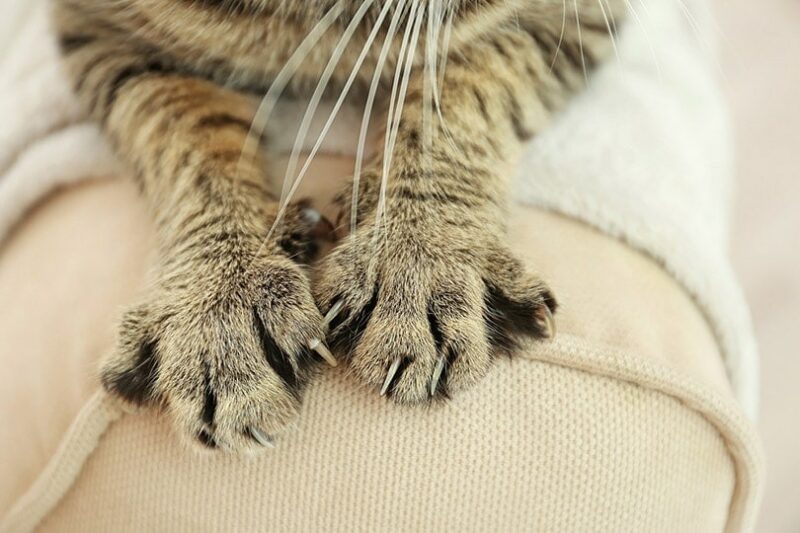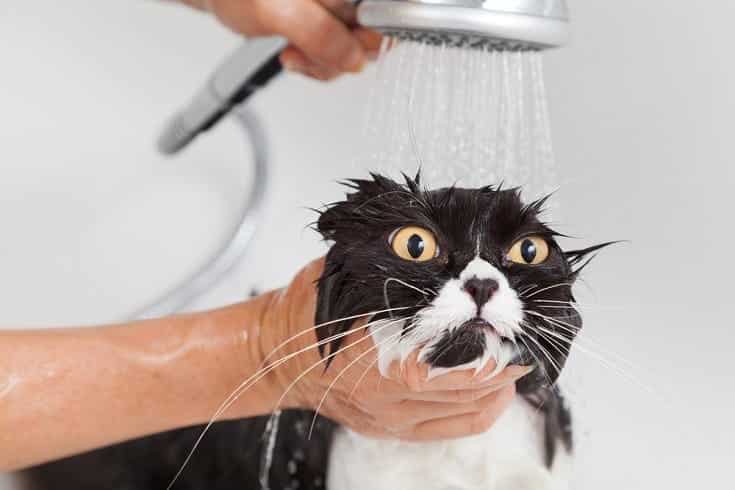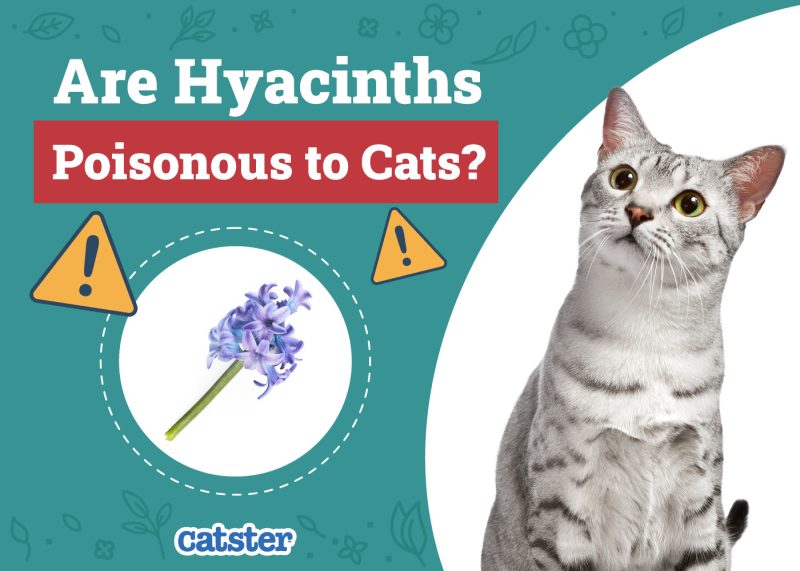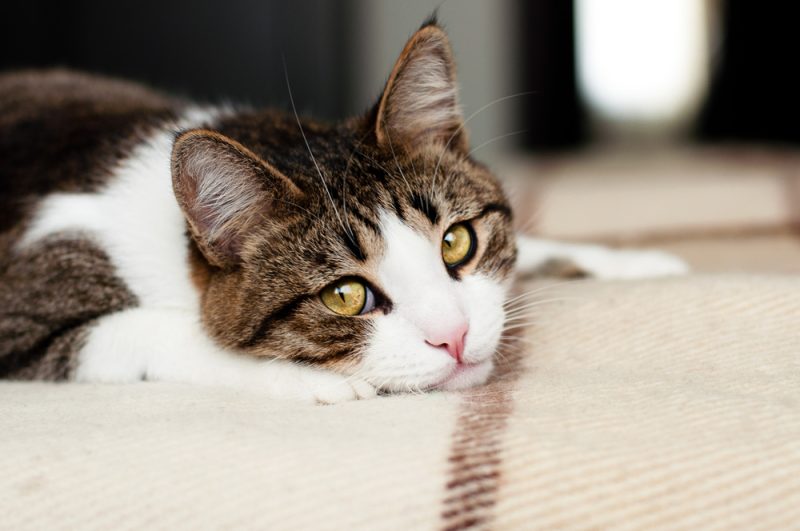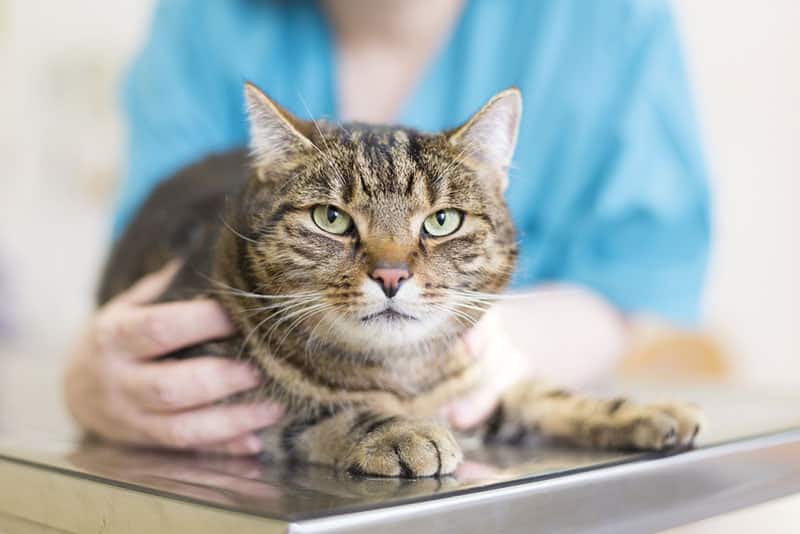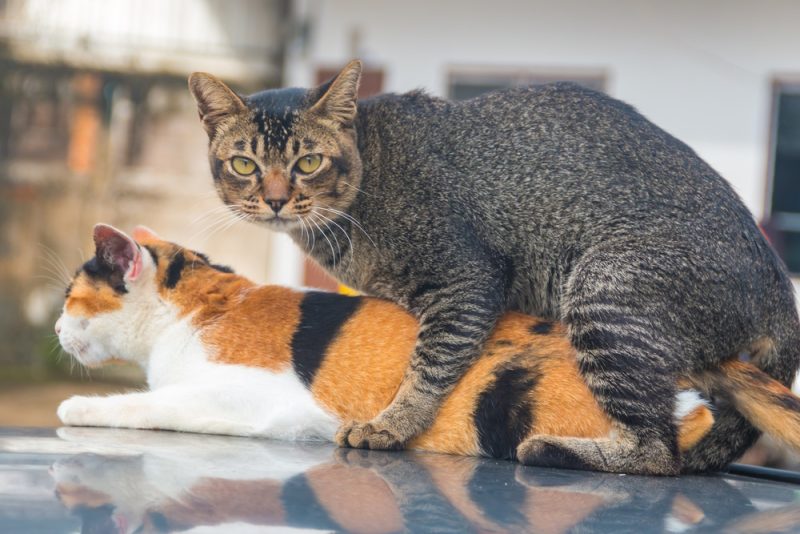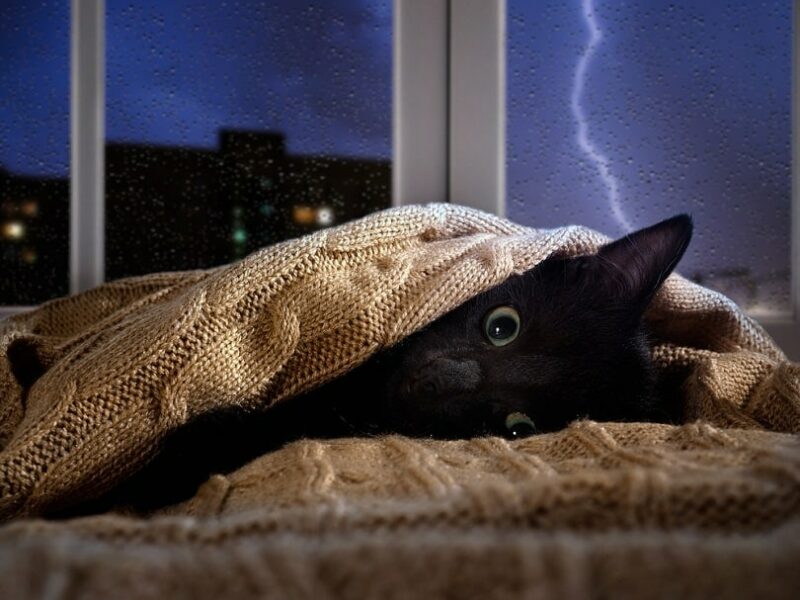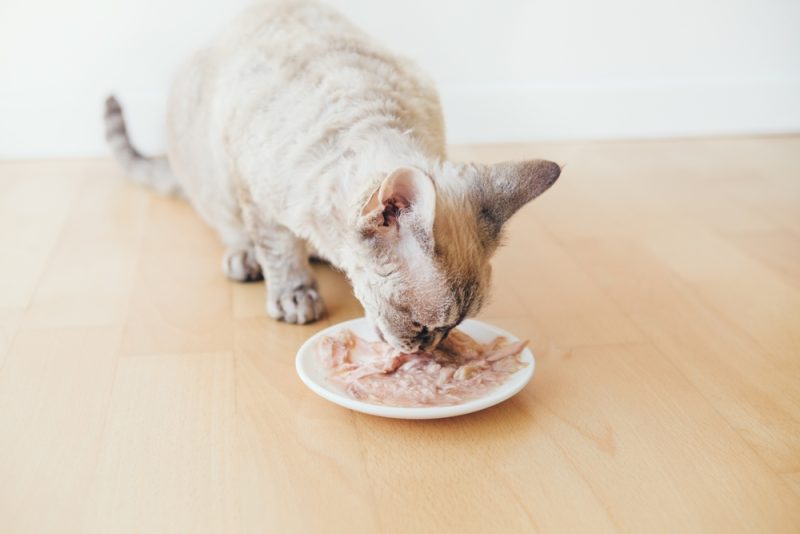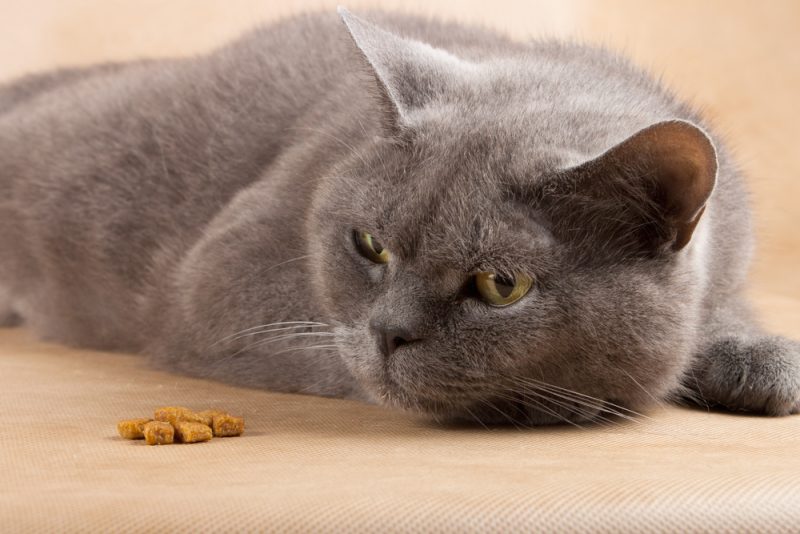In this article
Most cats are not big fans of visiting the vet, so you can imagine how unimpressed they will be when they have to go twice in one week! But that can sometimes be the case if your kitty has a reaction to their vaccine, particularly if you don’t know what to expect. Although any sign of illness or injury should always be brought to the attention of your vet, it can be helpful to know what sort of effects a vaccination might have and to be aware of what to be looking out for.
A cat that is lethargic and limping could have an infection, a bite, or even cancer, but if they have had a vaccination in the past week, this may well be the culprit, and it’s all to do with how vaccinations are given these days. You might be used to seeing your cat receive an injection in their scruff, but it is now more common to give vaccinations over a limb. The combination of a local reaction to the injection and the immune response to vaccination can sometimes result in a feverish feline with a sore leg.
Let’s look a bit closer at why this can happen and when you need to worry.

Why Is My Cat Lethargic and Limping After a Vaccine?
As we know, vaccinations are important to protect our cats against a number of infectious diseases, including rabies, feline leukemia, cat flu, and panleukopenia, but how does vaccination work, and why can it make our cats feel unwell?
How Does Vaccination Work?
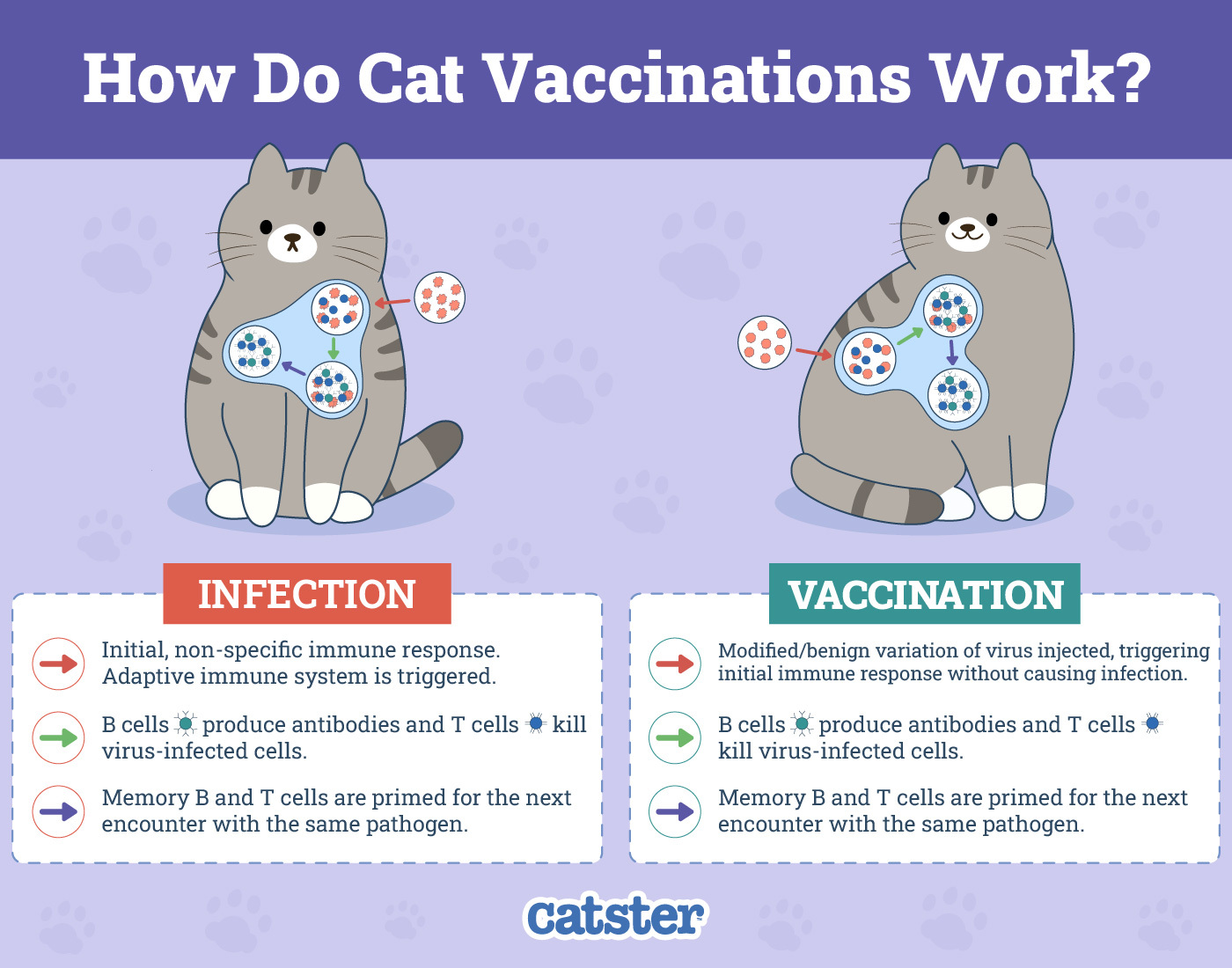
When our bodies encounter a pathogen like a virus, it can take some time for the immune system to recognize the foreign antigen, create specific antibodies to fight the infection, and mount a defense. If the infection is successfully defeated, the immune system “remembers” that antigen for months to sometimes years so that the next time it encounters it, the defense happens more quickly, as the body already knows which antibodies to produce.
Vaccination works by introducing an altered or deactivated version of a virus that essentially tricks the immune system into mounting that first defense, creating a memory of the antibodies that can be stored for the future. Different vaccines are given at different time intervals based on how long the antibody memory lasts.

Why Does Vaccination Make My Cat Lethargic?
When a foreign antigen triggers an immune response, it sets off a cascade of inflammatory events, including elevating the body temperature to try to kill off any foreign organisms. This is why infection often results in a fever. The trouble is that this defense mechanism can also affect normal cells and function, making us feel unwell, which is why it is not unusual for your cat to be lethargic in the day or two following a vaccination.
Although it may not be pleasant for your kitty, it does tell us that our cat’s immune system has responded to the vaccine.
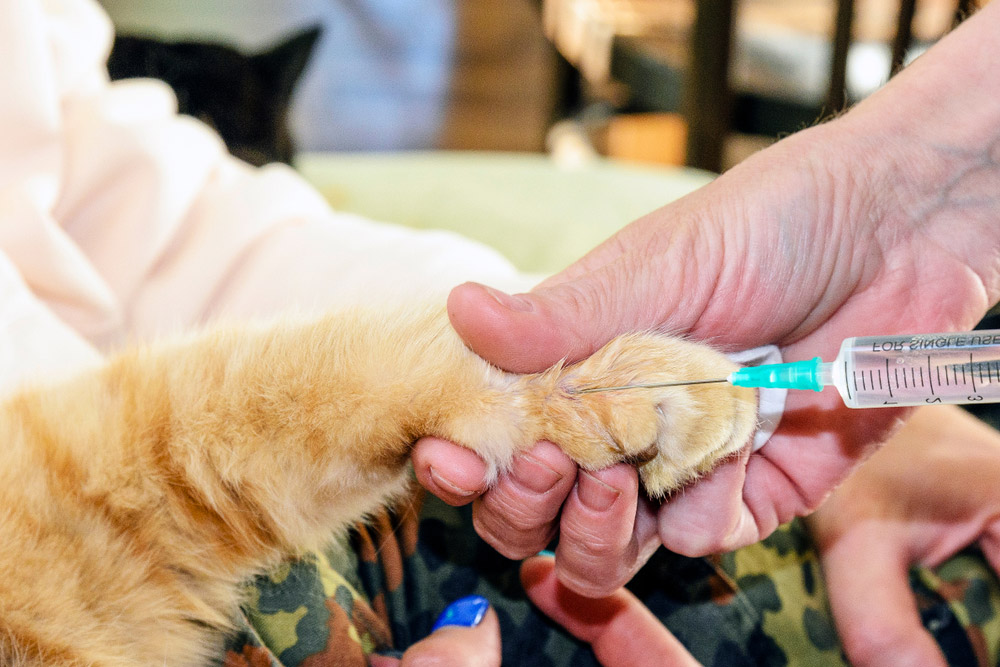
Why Would Vaccination Cause My Cat to Limp?
Similar to the immune reaction to vaccination, the body will send inflammatory cells to the source of the infection, in this case, the injection. Sometimes, this can result in tenderness or pain around the vaccination site, or it may cause a firm lump to appear over a period of days or weeks, which could cause your cat to limp.

Why Did the Vet Inject My Cat in the Leg?
In most cases, it is far easier and less painful to give a cat an injection into the loose skin around the back of their neck, commonly referred to as their scruff. However, studies have linked certain types of feline vaccinations to an aggressive form of cancer, called feline injection-site sarcomas (FISS). Although scientists are still trying to understand the specific process that leads to the development of FISS, there is enough evidence of this link to have prompted a change in the suggested vaccination protocol.
The risk of your cat developing FISS is less than 0.1%; however, if a sarcoma did develop, aggressive surgical treatment is needed, and this will be far more successful over a limb rather than in the area overlying the spine. In this way, although we cannot completely eliminate the risk of FISS, we can maximize our chances of successful removal of the cancer through limb amputation.
Studies suggest that the Feline Leukemia Virus Vaccine may have a greater risk of causing a sarcoma, possibly due to the fact that the virus itself attacks the bone marrow and immune system.
One method to reduce risk is giving leukemia vaccines every 3 years, rather than annually. There is also a form of the FeLV vaccine that is believed to have a lower risk of causing FISS, but it does not give as long-lasting protection, so needs to be given annually.

Other Reasons Your Cat May Be Lethargic and Limping
If your cat has recently had a vaccination, it is reasonable to suspect this to be the cause of their clinical signs; however, it is not a reason to dismiss them. They may still need veterinary attention to help reduce their fever and make them feel more comfortable, or the timing of the vaccination may be a coincidence and there is something else going on.
Infection
An infection from a wound, bite, or even from the injection itself could cause pain and fever.
Neoplasia (cancer)
Cancer, such as FISS or osteosarcoma, although rare, will cause pain and fever.
Animal Bite
This is less likely if your cat lives indoors. However, a bite from a rodent, spider, snake, or insect is possible.
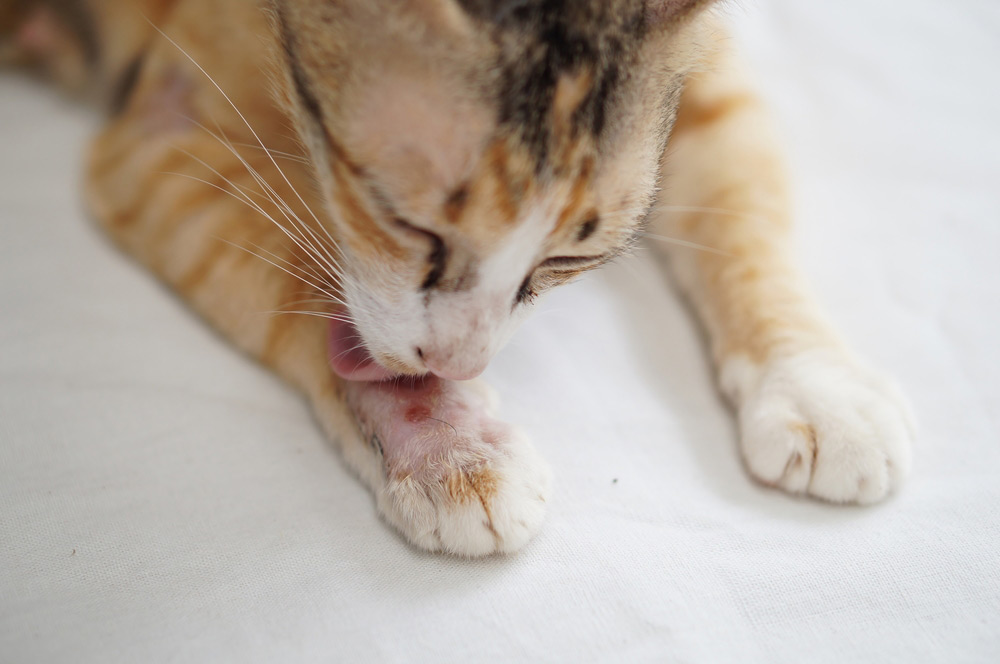
Do I Need to Take My Cat to the Vet?
If your cat is lethargic and limping after a vaccine, you should definitely phone your vet for advice. Depending on the circumstances, they may recommend bringing your cat in for a check-up or just monitoring them at home for a couple of days. In either case, vets need to report any adverse reactions to vaccines to ensure there aren’t any issues with a particular batch, so always let them know if there is a problem.
As we can see, there are other reasons your cat might be lethargic and limping, so we can’t just assume that the vaccine is the culprit.
If you need urgent veterinary advice, consult a vet online.
If you need to speak with a vet but can't get to one, head over to PangoVet. It's an online service where you can talk to a vet online and get the advice you need for your pet — all at an affordable price!

Frequently Asked Questions
Does This Mean My Cat Shouldn’t Have Any Other Vaccinations?
Not necessarily. Pain and fever are not signs of an allergic reaction to a vaccination, and it is just as likely that they will have no reaction to a vaccination in the future. However, if your cat has had quite a strong reaction or this is not the first time they have reacted to a vaccine, your vet may recommend stopping or reducing vaccinations in the future.
Can Any Injection Cause a Reaction?
Yes. Any time any foreign object penetrates the skin, especially if a substance is injected, there is a small risk of a reaction. In the majority of cases, this reaction is limited to mild redness, swelling, or slight bleeding. Your vet will let you know if there are any specific reactions that a particular injection could cause.
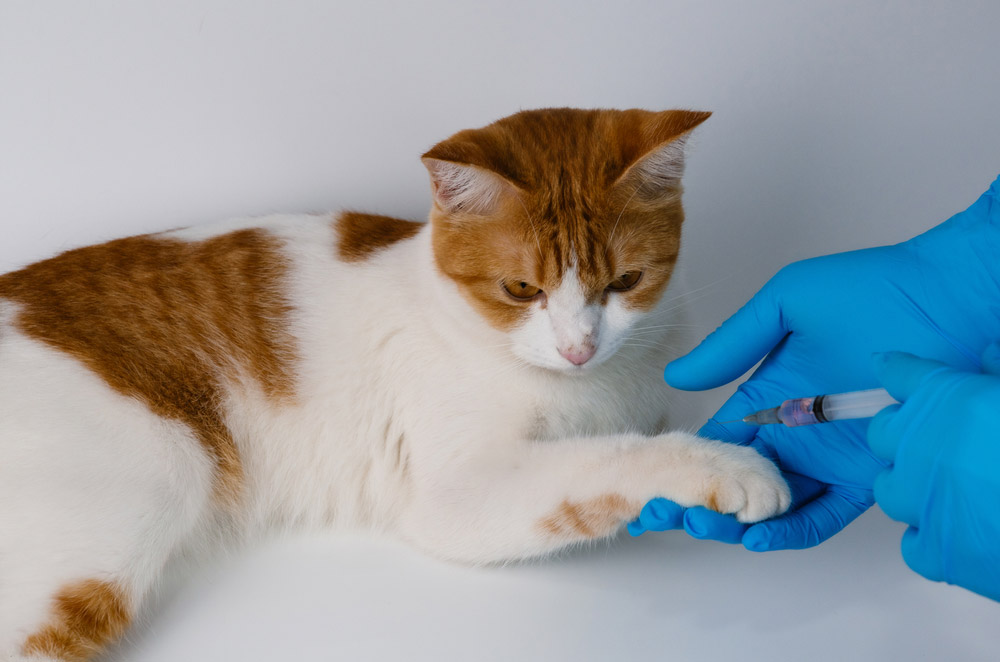
Can Any Injection Cause FISS?
Technically yes, but as the incidence of FISS is quite low, there is very little data or information about this.
Should I Still Vaccinate My Cat?
Absolutely. Even indoor cats can contract certain infections. The incidence of feline leukemia in the US is more than 30 times that of the incidence of FISS and is the number one viral killer of cats. The risks of not vaccinating are far greater than the risks associated with vaccination.
Can I Give My Cat Acetaminophen After a Vaccine?
This is a definite no. While this medication can help us feel better after having a vaccination, acetaminophen is highly toxic to cats, as they lack the enzyme needed to metabolize it.

Final Thoughts
There are a number of reasons why your cat may be lethargic and limping, but if they have had a vaccination within the last week, this may very well be the culprit.
Vaccination works by injecting a substance that mimics infection, triggering an inflammatory immune response. Unfortunately, this can sometimes cause side effects like discomfort, swelling, and fever. Because certain feline vaccinations have been linked to a type of cancer, vaccine manufacturers recommend injecting into over a limb rather than in the traditional scruff. This improves the chances of surgical removal if cancer were to develop, but the actual risk of this is very low.
Never hesitate to speak to your vet if you have any concerns about vaccinating your cat, or about any possible reaction they may be having.
Featured Image Credit: Krakenimages.com, Shutterstock
